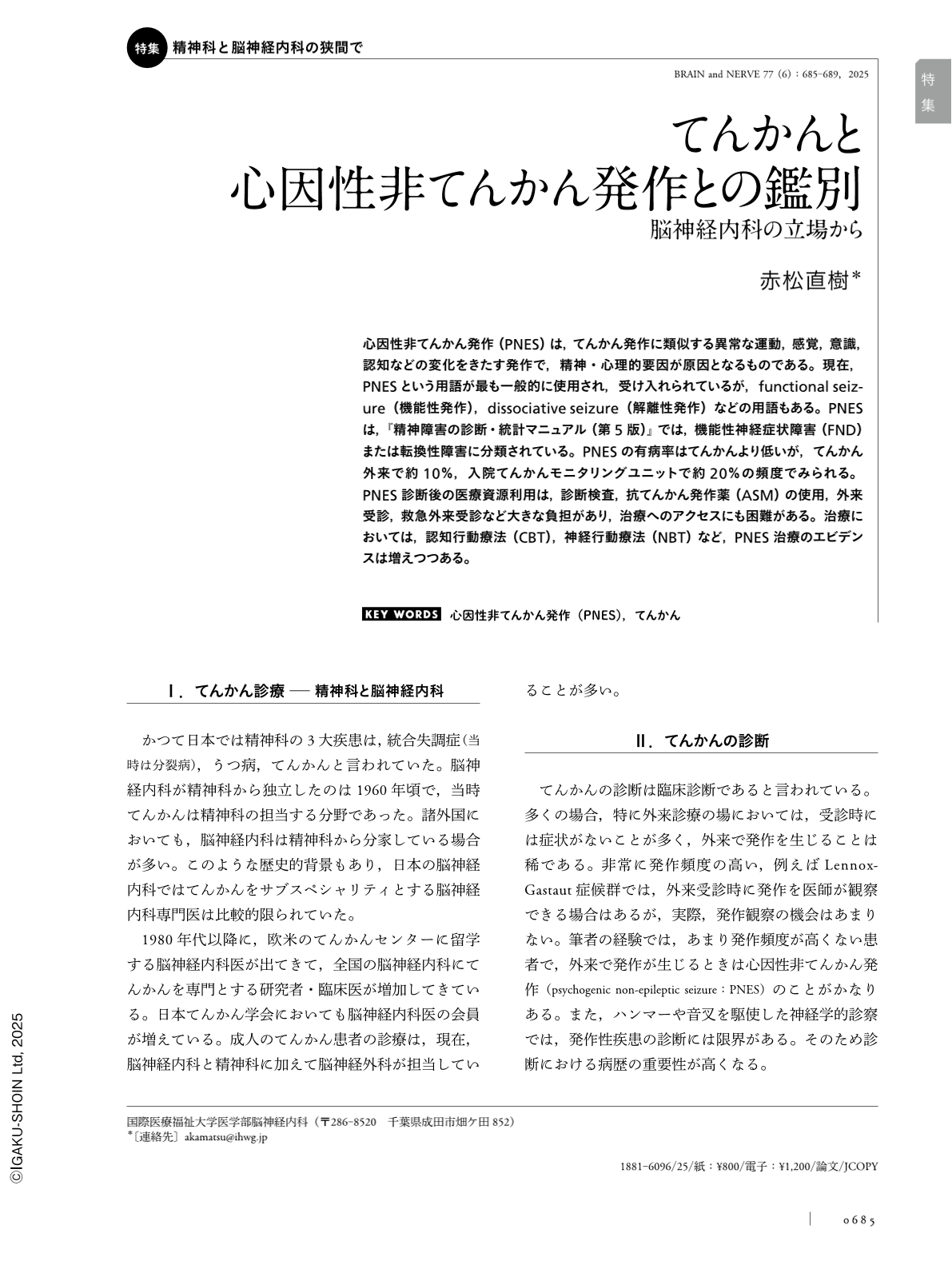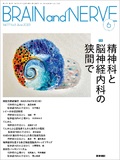Japanese
English
- 有料閲覧
- Abstract 文献概要
- 1ページ目 Look Inside
- 参考文献 Reference
心因性非てんかん発作(PNES)は,てんかん発作に類似する異常な運動,感覚,意識,認知などの変化をきたす発作で,精神・心理的要因が原因となるものである。現在,PNESという用語が最も一般的に使用され,受け入れられているが,functional seizure(機能性発作),dissociative seizure(解離性発作)などの用語もある。PNESは,『精神障害の診断・統計マニュアル(第5版)』では,機能性神経症状障害(FND)または転換性障害に分類されている。PNESの有病率はてんかんより低いが,てんかん外来で約10%,入院てんかんモニタリングユニットで約20%の頻度でみられる。PNES診断後の医療資源利用は,診断検査,抗てんかん発作薬(ASM)の使用,外来受診,救急外来受診など大きな負担があり,治療へのアクセスにも困難がある。治療においては,認知行動療法(CBT),神経行動療法(NBT)など,PNES治療のエビデンスは増えつつある。
Abstract
Psychogenic non-epileptic seizures (PNES) are characterized by abnormal movements, sensations, awareness, or cognitive changes that resemble epileptic seizures, but are caused by psychological or psychiatric factors. Although the term “PNES” is currently the most widely used and accepted, other terms, such as “functional seizures” and “dissociative seizures,” are employed. According to the Fifth Edition of Diagnostic and Statistical Manual of Mental Disorders, PNES is classified as a functional neurological symptom or conversion disorder. Although the prevalence of PNES is lower than that of epilepsy, it is observed in approximately 10% and 20% of patients in epilepsy outpatient clinics and inpatient epilepsy monitoring units, respectively. Following the diagnosis of PNES, patients often face a significant burden regarding healthcare resource use, including diagnostic testing, use of anti-seizure medications, outpatient visits, and emergency room visits. Accessing appropriate treatments remains challenging. However, evidence supporting effective treatments for PNES, such as cognitive behavioral and neurobehavioral therapies, is steadily increasing.

Copyright © 2025, Igaku-Shoin Ltd. All rights reserved.


